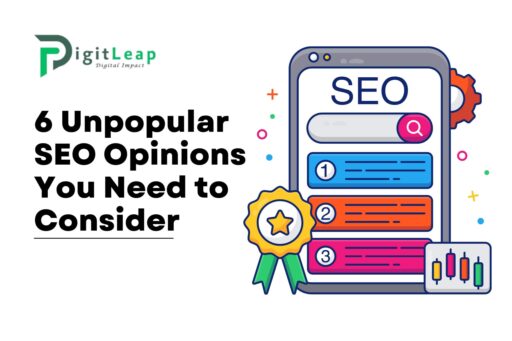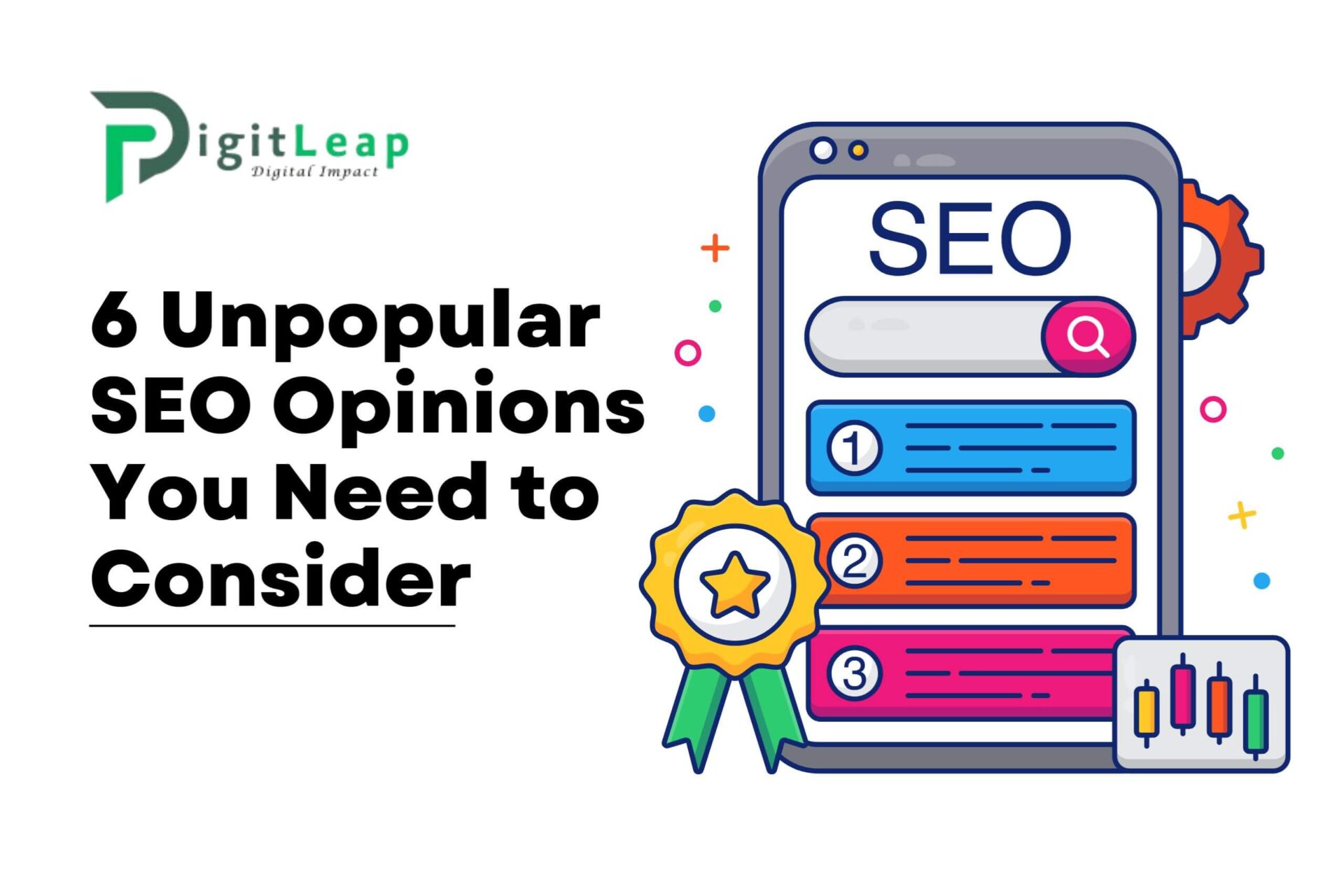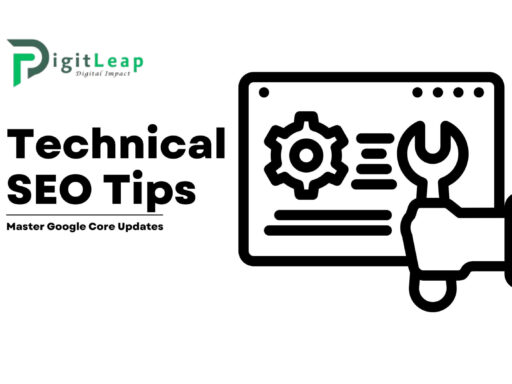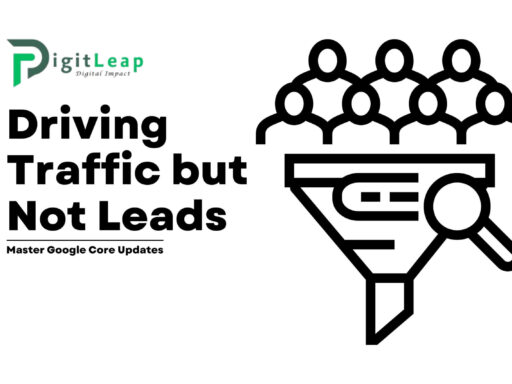The world of SEO is full of best practices, golden rules, and popular trends that seem to dominate discussions. But what if some of the lesser-known perspectives on SEO could actually help you stand out? There are a few unpopular SEO opinions that challenge the status quo and encourage us to rethink traditional approaches to ranking and search visibility. While not everyone will agree with these ideas, they can provide valuable insights for marketers looking to innovate.
Let’s dive into six unpopular SEO opinions that might just change the way you think about your strategy.
1. Backlinks Are Overrated
For years, backlinks have been touted as one of the most critical ranking factors. While backlinks certainly play a role in building authority, they’re not the ultimate solution for every SEO problem. Some experts argue that backlinks are now overemphasized, especially with Google’s increasing focus on content quality and user experience.
- User Experience Over Backlinks: Google’s recent updates have emphasized Core Web Vitals, E-A-T (Expertise, Authoritativeness, Trustworthiness), and on-page content quality. These factors are arguably more important for long-term ranking than the sheer volume of backlinks.
- Quality Over Quantity: Google’s algorithm is evolving to recognize and discount low-quality links. So instead of chasing backlinks, focus on creating highly relevant, valuable content that naturally attracts high-quality links over time.
While backlinks can still give you a boost, they’re not the end-all solution, and focusing on building a robust user experience could provide a more sustainable edge.
2. Keyword Density Is a Thing of the Past
The idea of maintaining an optimal keyword density—ensuring a keyword appears a certain number of times in an article—was once considered essential. However, this approach is largely outdated. Google’s algorithms are advanced enough to understand context, synonyms, and user intent without relying on repetitive keywords.
- Focus on Natural Language: Google’s algorithms, especially with the advent of BERT and MUM, prioritize natural, conversational language over repetitive keyword usage. Writing naturally helps create a better reading experience and avoids keyword stuffing penalties.
- Semantic SEO: Instead of focusing on the same keyword, include related terms, synonyms, and variations to provide comprehensive information on a topic. This approach aligns better with how search engines interpret content.
By focusing on relevance and depth rather than keyword density, you can improve the readability of your content and provide more value to readers.
3. Exact-Match Domains Don’t Matter as Much Anymore
At one point, having an exact-match domain (EMD) was seen as a surefire way to improve rankings for specific keywords. While EMDs still hold some value, they are no longer as influential as they once were. Google now focuses more on the quality of your content, your site’s relevance, and user satisfaction.
- Brand-Building Over Keywords: A strong brand name can have a far greater impact on SEO than an EMD. Users are more likely to remember and trust a unique brand name than a domain that feels overly optimized for keywords.
- Content and User Intent Matter More: Google’s algorithm is now sophisticated enough to recognize content relevance and intent over keywords in the domain name. Focus on delivering valuable, high-quality content rather than relying on an exact-match domain to boost rankings.
Building a memorable brand and creating user-focused content will do more for your SEO than an exact-match domain ever could.
4. Social Signals Aren’t a Direct Ranking Factor—But They Matter
It’s true that social signals (likes, shares, and comments on social media) aren’t direct ranking factors in Google’s algorithm. However, their influence on SEO shouldn’t be ignored. Social media engagement can drive traffic, build brand awareness, and contribute to other factors that indirectly boost rankings.
- Social Proof and Authority: High social engagement builds trust and authority, which can attract organic backlinks from other websites. It’s easier to earn backlinks when your brand is well-recognized and valued in your industry.
- Increased Traffic and Visibility: Popular content on social media can drive significant traffic to your site. The more people visit and engage with your site, the more Google may interpret this as a sign that your content is valuable.
While social signals might not have a direct impact on rankings, they can amplify your reach, build credibility, and contribute to your overall SEO strategy.
5. Publishing Frequency Isn’t as Important as Quality
There’s a common belief that publishing content frequently is key to ranking well. While consistent content updates can keep your site fresh, publishing for the sake of quantity over quality is a mistake. Google values high-quality, in-depth content over a constant stream of mediocre posts.
- Focus on Value: Every piece of content you publish should offer real value to your audience. Thin or repetitive content can dilute your site’s authority and frustrate users, which can ultimately harm your rankings.
- Evergreen Content Over Frequent Updates: High-quality, evergreen content that remains relevant over time can generate consistent traffic and rankings. By focusing on in-depth, valuable articles, you build a strong content library that performs well in search results long-term.
Instead of aiming for volume, focus on publishing content that genuinely benefits your audience. Quality will always outperform quantity in the long run.
6. SEO Metrics Alone Don’t Define Success
It’s easy to get caught up in SEO metrics like organic traffic, keyword rankings, and domain authority. While these metrics provide valuable insights, they don’t always tell the full story of success. An unpopular but valuable opinion is that conversion-focused metrics—like lead generation, user engagement, and customer satisfaction—are often more critical.
- Focus on Conversions and Engagement: High rankings and traffic are only valuable if they contribute to your business goals. Prioritize metrics that reflect user engagement, lead generation, or sales conversions rather than solely focusing on SEO metrics.
- Quality Traffic Over Quantity: It’s better to attract fewer, highly engaged visitors than to bring in large volumes of uninterested traffic. SEO efforts should aim to drive relevant traffic that is more likely to convert or engage with your brand.
By aligning your SEO strategy with broader business goals, you create a more meaningful impact that goes beyond just rankings and clicks.
Conclusion
While these unpopular opinions might challenge some established SEO beliefs, they can lead to a more balanced and effective strategy. By focusing on quality over quantity, building a strong brand, and prioritizing user experience, you’ll create a sustainable SEO approach that aligns with Google’s evolving algorithm and user expectations.
At Digit Leap, we understand that the SEO landscape is always changing. We’re here to help you navigate these shifts with strategies that prioritize quality, relevance, and user engagement. Let’s take your SEO to the next level with insights that challenge the norm and drive real results.
FAQs
Q1. Are backlinks still valuable in SEO?
Yes, but the focus is shifting towards quality over quantity. Building a few high-quality, relevant backlinks is more valuable than acquiring many low-quality links.
Q2. Does keyword density still matter in 2024?
Not as much. Google’s algorithms prioritize natural language and user intent over keyword repetition. Focus on readability and content relevance instead.
Q3. Do social media shares impact SEO?
Indirectly, yes. Social engagement can increase brand visibility, drive traffic, and attract organic backlinks, all of which contribute to SEO success.
Q4. How often should I publish content?
Quality is more important than frequency. Aim to publish valuable, in-depth content, even if it means fewer posts.
Q5. Should I focus solely on SEO metrics?
No, prioritize conversion-focused metrics like user engagement, lead generation, and customer satisfaction to measure real success.






